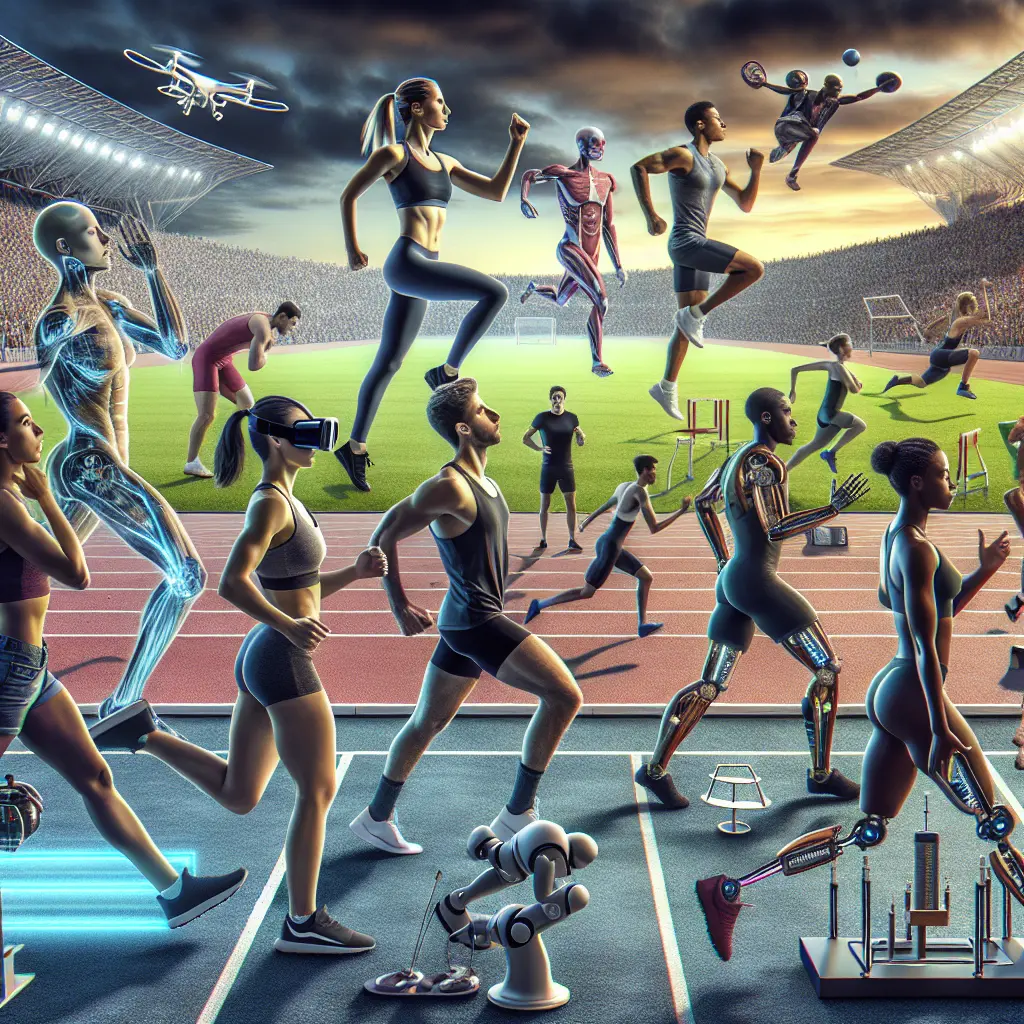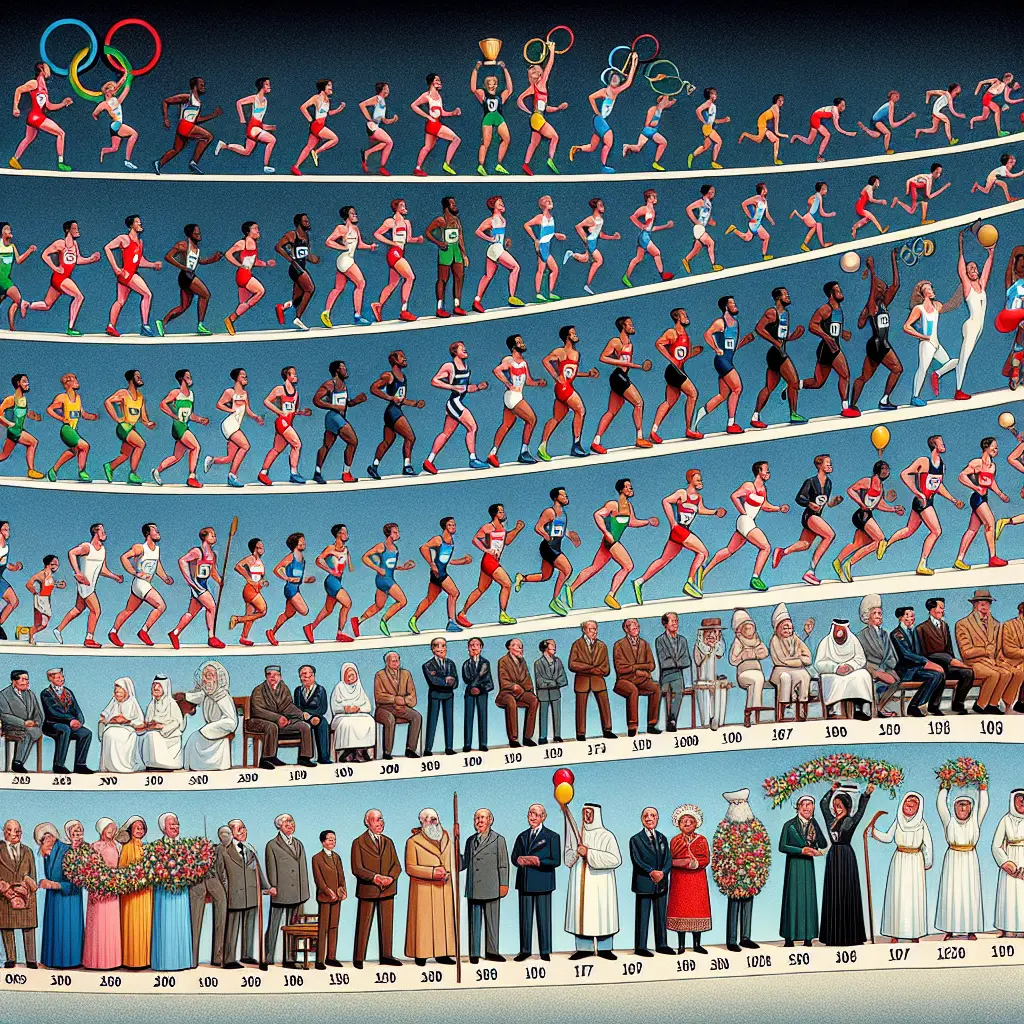As the world evolves, so does one of its most beloved traditions: the Olympic Games. From their ancient origins to the spectacular global event we know today, the Olympics continue to adapt, reflecting changes in society, technology, and the environment. As we look towards future games, including the much-anticipated 2024 Paris Olympics, several key trends and developments are shaping the "Future of the Olympics."
Modern Olympic Games are a stage for not only athletic excellence but also technological innovation. Technologies like artificial intelligence and virtual reality are reshaping how we view and experience sports. Xfinity’s recent announcement about broadcasting the Olympics with Dolby Vision and Dolby Atmos on its Stream app is a prime example. This enhancement will offer unprecedented clarity and sound quality, providing a more immersive viewing experience.
Sustainability has become a central theme in the planning and execution of the Olympic Games. The upcoming 2024 Paris Olympics exemplify this shift, with promises of being one of the most sustainable games ever. Initiatives include using existing or temporary venues, promoting low-emission transportation options for athletes and fans, and ensuring that all activities are carbon-neutral.
The impact of climate change poses significant challenges to hosting the Olympic Games. Issues such as extreme weather conditions can affect both the scheduling and locations of outdoor sports. The recent concerns over Dengue Fever potentially affecting the 2024 Summer Olympics highlight the broader implications of environmental changes on international events.
Hosting the Olympics is a monumental task that comes with a significant economic impact. While the immediate benefits include increased tourism and job opportunities, the long-term financial outcomes can vary. Cities must carefully plan and manage resources to ensure that the investments made in hosting the Olympics yield positive returns over time.
Global Politics and Inclusion in Olympics
The intersection of global politics and the Olympics is unavoidable, as the games bring together nations from around the world in a highly visible forum. Political tensions can manifest in various ways, from the inclusion or exclusion of countries and athletes to protests during the games. Navigating these challenges requires diplomacy and adherence to the Olympic spirit of promoting peace and unity.
The inclusion of new sports is a testament to the evolving nature of the Olympic Games. Sports like skateboarding and surfing, included in recent games, highlight a shift towards more diverse and inclusive sporting events that appeal to younger audiences and reflect global trends.
Ensuring athlete safety and health is paramount, with increasing attention on both physical and mental health aspects. The stringent health protocols and support systems in place for detecting and managing issues like heat stress or infectious diseases are crucial for safeguarding athlete welfare during the games.
The Olympic Games have made significant strides in promoting diversity and inclusion, not just in terms of gender parity but also in accommodating athletes from various socio-economic backgrounds and with disabilities. Each iteration of the games seems to broaden its embrace, moving closer to truly representing the global populace.
Virtual Reality and Future Trends
Looking ahead, virtual reality (VR) holds the potential to revolutionize how we participate in and watch sports. The concept of a Virtual Reality Olympics could allow fans from around the world to experience events as if they were there in person, breaking down geographical and economic barriers to participation.
As broadcast technologies advance and consumer habits change, so too does viewership for the Olympic Games. Platforms offering enhanced ways to watch, like streaming services detailed in guides on "How to stream the Olympics like a champ," cater to a growing preference for on-demand content consumption.
The selection of host cities reflects the International Olympic Committee's focus on sustainability and long-term benefits for the host nations. Future cities will likely be those that demonstrate strong environmental stewardship, robust infrastructure, and a clear legacy plan post-Olympics.
Each Olympic Games brings something unique to the table, and Paris 2024 is set to be a landmark event with an opening ceremony that promises to break from tradition by taking place along the Seine River. This innovative approach not only highlights France’s rich cultural heritage but also signals a move towards more dynamic and accessible event formats.
In conclusion, as we look towards future Olympic Games in an ever-changing world, it is clear that they will continue to evolve in response to technological advancements, environmental concerns, economic realities, political climates, and social shifts. These changes ensure that the Olympic spirit remains relevant and vibrant, resonating with new generations across the globe.










Leave a Comment